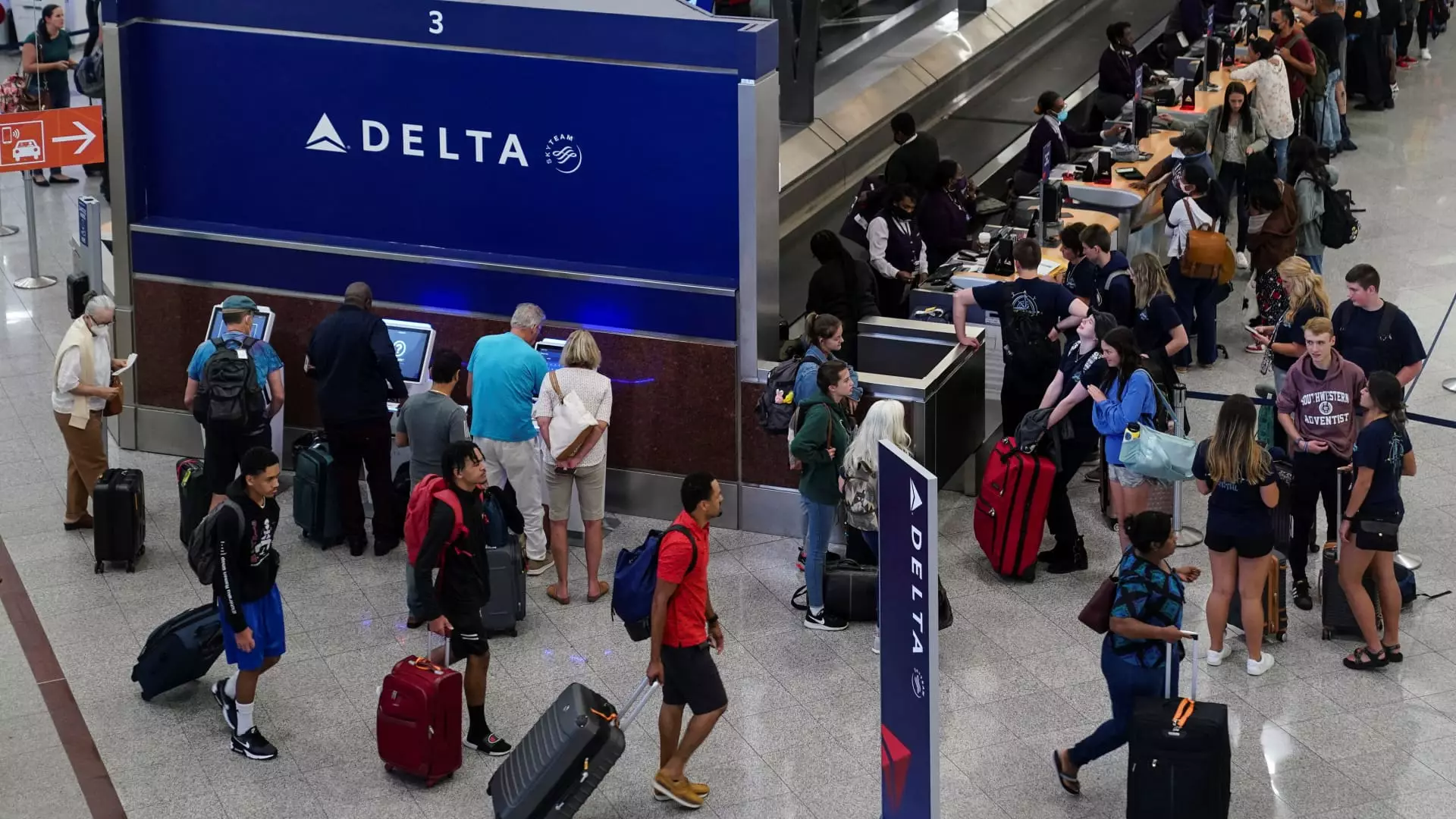Delta Air Lines recently announced optimistic projections for sales growth in 2025, leveraging insights from a resilient economy that fuels travel demand and consumer spending. In an era where disposable income appears resilient among higher-income consumers, Delta has positioned itself to capitalize on this trend, especially through offerings targeted at premium travelers. While increasing operational expenses pose challenges—expected to rise in low single digits next year—Delta remains confident in its ability to drive mid-single-digit revenue growth. This projected growth mirrors market expectations and showcases the airline’s robust planning as it heads into the next fiscal year.
In a landscape where other companies, such as Target, are adjusting their profit outlooks downward due to diminishing discretionary spending, Delta is setting itself apart by anticipating a more favorable consumer climate. The airline expects adjusted earnings growth of about 10% annually over the next several years. Delta’s leadership emphasizes its distinct positioning in the industry, primarily through a fruitful partnership with American Express, which is projected to generate $7 billion in revenue this year alone. Delta aims to elevate this figure to $10 billion in the long term. This relationship is critical as it channels affluent customers towards the airline, aligning with its strategy to cater to high-spending travelers.
Targeting Wealthy Consumers in a Competitive Landscape
Delta’s strategic focus has shifted significantly towards attracting wealthier clientele, an approach backed by increased spending in high-income households. Notably, millennials and Generation Z are emerging as vital segments for future growth—both demographics that prioritize travel experiences and premium offerings. The demand dynamics reveal that Delta garners the majority of its revenue—approximately 57%—from premium seat sales and loyalty programs, illuminating a substantial shift away from its historical reliance on main cabin ticket sales.
As Delta eyes future growth, it anticipates that revenue generated from its premium seating will surpass that from economy seats by 2027. This projection not only reflects a shift in consumer preferences but also highlights the airline’s adeptness at adapting its services to meet evolving market demands. In contrast, Delta’s competitors like United Airlines have also found ways to cater to high-end travelers, creating a competitive environment that necessitates innovative offerings.
Delta’s approach to enhancing its onboard services cannot be understated. For years, the airline relegated first-class seats to frequent flyer upgrades, but today, over 70% of those seats are purchased outright—a monumental transformation recognizable within Delta’s operational model. This progressive shift demonstrates the airline’s tenacity in redefining customer expectations and monetizing full-fare products.
Delta’s focus on segmentation within its cabin offerings reflects its intent to cater to diverse passenger needs. This diversification extends beyond standard main cabin seats into premium economy and other enhanced seating options, which provide greater comfort for travelers seeking a more luxurious travel experience. Moreover, Delta’s continuing exploration of innovative seating configurations indicates a commitment to maintaining a competitive edge.
While Delta maintains its optimistic outlook, the airline must remain cognizant of the broader economic environment and its potential fluctuations. The airline industry is notoriously sensitive to economic shifts, and factors such as rising operational costs, changes in consumer sentiment, and increased competition pose real threats to sustained growth. Nonetheless, Delta’s proactive strategies aimed at retaining high-spending customers and evolving its service offerings exhibit a robust blueprint for navigating the complexities of the aviation market.
Delta Air Lines stands at a pivotal point, framed by promising projections and strategic innovations directed at wealthier clientele. While challenges abound, the airline’s responsive approach should allow it to weather external fluctuations effectively. Interest in premium offerings will likely drive Delta’s growth trajectory, positioning it as a formidable player within the industry for years to come.

